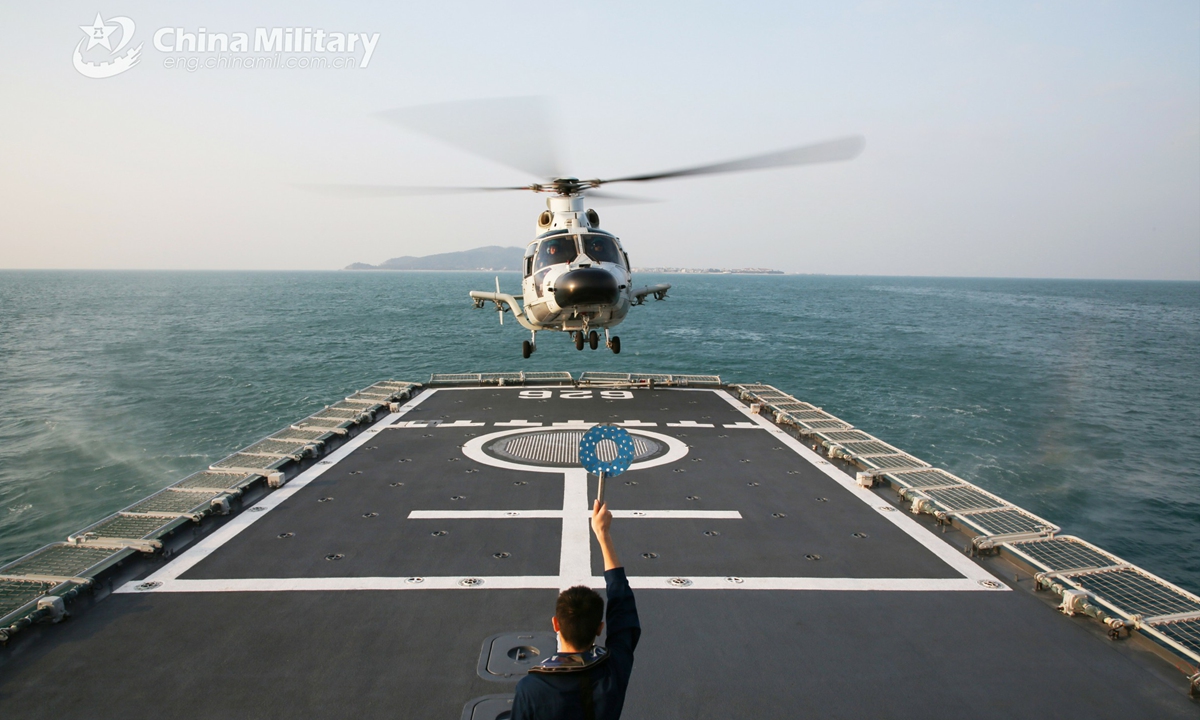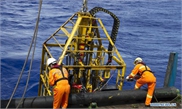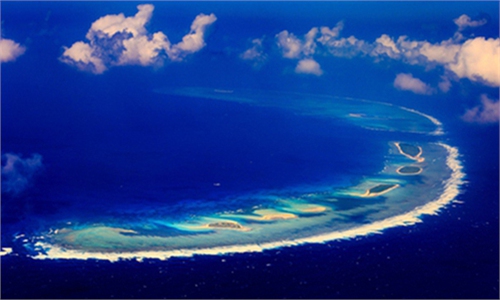
A ship-borne helicopter attached to a frigate flotilla with the navy under the PLA Southern Theater Command lands on the flight deck of the guided-missile frigate Wuzhou (Hull 626) under the guidance of a sailor during a maritime fire-fighting training operation in early December, 2021.Photo:China Military
Recently, the US has continued to make negative moves and statements on the Taiwan question and stir up tensions in the Taiwan Straits, threatening China's sovereignty and security while endangering regional peace and stability. While US warships have repeatedly navigated through the Straits, US officials have been hyping that the Taiwan Straits are "international waters," misinterpreting and discrediting China's stances and practices, creating excuses for supporting "Taiwan independence" separatist forces and manipulating Taiwan-related questions.The status of the Taiwan Straits in international law is clear. According to the 1982 United Nations Convention on the Law of the Sea (UNCLOS) and China's domestic law, China enjoys sovereignty, sovereignty rights and jurisdiction over the Taiwan Straits.
Specifically, the waters on the landward side of the baselines of the territorial sea constitute the internal waters of China. The breadth of the territorial sea of China is 12 nautical miles, measured from the baselines of the territorial sea. Foreign ships for non-military purposes shall enjoy the right of innocent passage through the territorial sea of China in accordance with the law; foreign ships for military purposes shall be subject to approval by the Chinese government for entering the territorial sea of China. Foreign countries enjoy freedom of navigation and overflight in the waters of the central part of the Taiwan Straits outside the territorial sea which belongs to China's exclusive economic zone (EEZ), with due regard to the rights and obligations of China as a coastal state, and in compliance with the laws and regulations formulated by China in accordance with the UNCLOS and other rules of international laws.
China respects the legitimate rights of other countries in the relevant waters. However, the frequent passage of US warships through the Straits and the related rhetoric are a military provocative gesture against China, which undermines the peace and stability of the Taiwan Straits and is bound to be strongly opposed by China.
The "international waters" repeatedly claimed by the US is neither derived from the UNCLOS nor from the rules of general international laws, but is based on its domestic and foreign policies, domestic laws and its unilateral interpretation of the international maritime laws.
The US Code of Federal Regulations defines "international waters" as "waters located outside the US territorial sea... and outside the territory of any foreign country, including the territorial waters thereof." In short, the US, for its own purposes of maritime operations, considers all waters outside the territorial sovereignty of a country (including the EEZ where the coastal country enjoys sovereign rights and jurisdiction) as "international waters."
The logic may resemble the scope of what individual laws of the sea norms in history have referred to as the "high seas," but it does not correspond to the delimitation of the global maritime area by the nature of the different types of rights according to the UNCLOS, which reflects the modern law of the sea. Article 86 of the UNCLOS clearly states that the provisions of the part of high seas applies to all parts of the sea that are not included in the EEZ, in the territorial sea or in the internal waters of a state, or in the archipelagic waters of an archipelagic state, which essentially distinguishes the high seas from the water mentioned in the article. The US delimitation of the global maritime area into maritime areas under sovereign jurisdiction and international waters, not only has no basis in the UNCLOS, but is also inconsistent with the spirit of balance of interests reflected in the Convention.
The US touts the concept of "international waters," not only ignoring the rights of coastal states in the exclusive economic zone, but also evading its international obligations to properly take into account the rights of coastal states. It is not pursuing and maintaining true freedom of navigation and overflight, but the absolute freedom that facilitates its maritime hegemony.
The answer is self-evident to the international community as who promotes "exceptionalism," "prioritism" and "legal isolationism" in the practice of international law and who tries to set up rules of conduct for other countries, but often stay away from the framework of the international rule of law.
The author is deputy director of the Research Center for Oceans Law and Policy at China's National Institute for South China Sea Studies. opinion@globaltimes.com.cn


